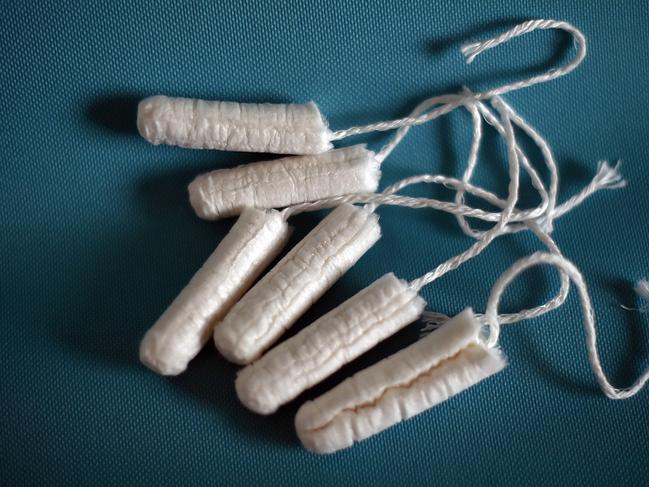Tampons now have to include ingredients, warnings to protect Australian women after campaign by Christine Stephens
When Lismore mum Christine Stephens went to her doctor after a reaction to a sanitary item, and discovered how common her experience was, she decided something needed to be done.
NSW
Don't miss out on the headlines from NSW. Followed categories will be added to My News.
A Lismore mum who fought a campaign of greater transparency by the makers of sanitary products has won a major victory with news that tampon manufacturers will now have to disclose their ingredients.
Law student Christine Stephens began the campaign “notinmyknickers” after suffering an allergic reaction herself to adhesives in sanitary items.
Unlike in the US, where laws require feminine hygiene products to list ingredients, Australian women are left in the dark.
Ms Stephens says only a few manufacturers were disclosing what was in the products — but “women have a right to know”.
Standards Australia will now require sanitary product manufacturers list all ingredients that go into their tampons in leaflets — and also provide specific information about prolonged use and the possible risk of Toxic Shock Syndrome.

The campaign win comes after other campaigns over sanitary items, including one to get the federal tax on feminine hygiene products axed, and another to get tampons and pads installed in NSW school bathrooms.
More recently, high profile women such as Home and Away actor Sophie Dillman have slammed Australia’s lack of menstrual leave.

While Toxic Shock Syndrome is rare it can be deadly and is linked to the staphylococcus bacteria.
Mother-of-three Ms Stephens had suffered dermatological symptoms for several years and had visited countless doctors and specialists trying to find out the cause and multiple courses of antibiotics to no avail.
Finally late last year she visited a dermatologist who put her finger on the problem — the adhesives in the products — who said “it’s actually quite common for girls and women”.
Two months later, after Ms Stephens switched to using period underwear and endured another course of antibiotics, her symptoms disappeared.

“That’s when my campaign started,” Ms Stephens said.
“Only a small number of manufacturers are disclosing ingredients and when I spoke with consumers, friends and family there was real anger — and a bit of resentment towards the manufacturers for effectively hiding the real information.
“Women have a right to know, particularly if those ingredients have the potential to cause a serious or even life-threatening reaction.”
She says she’s very pleased Standards Australia contacted her and have introduced the new standard — but she’s also hoping to submit documents to have it changed for pads and panty liners.
“I was contacted by a lot of consumers over issues with incontinence pads and disposable nappies as well — how many people do you know have babies with terrible nappy rash?” Ms Stephens said.
“I think we will be working with Standards Australia for a while.”
Standards Australia’s general manager of operations Kareen Riley-Takos said anyone using the products “should have the confidence that they have been manufactured and labelled safely”.
“This standard could positively impact the lives of many Australians, who have the right to know that it was developed with their safety as a top priority,” she said.
Every year around 300 million tampons are sold in Australia, with the average women using up to 12,000 disposable menstrual products in their lifetime.





